THE HISTORIC SPEECH MADE BY THE PRIME MINISTER OF PAPUA NEW GUINEA, HON. JAMES MARAPE TO THE NATIONAL PARLIAMENT OF AUSTRALIA, CANBERRA, 8TH FEB 2024.
THE HISTORIC SPEECH MADE BY THE PRIME MINISTER OF PAPUA NEW GUINEA, HON. JAMES MARAPE TO THE NATIONAL PARLIAMENT OF AUSTRALIA, CANBERRA, 8TH FEB 2024.
The momentous address delivered by the Prime Minister of Papua New Guinea, Hon. James Marape, to the National Parliament of Australia in Canberra on the 8th of February, 2024. Read the copy of the full speech below. You are welcome to share your thoughts and views in the comment section below.
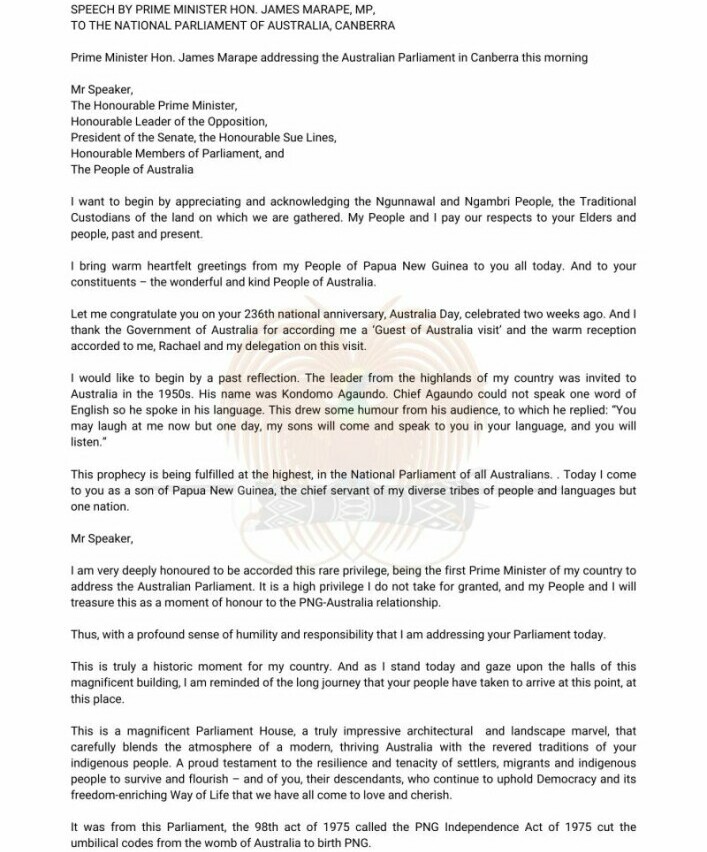
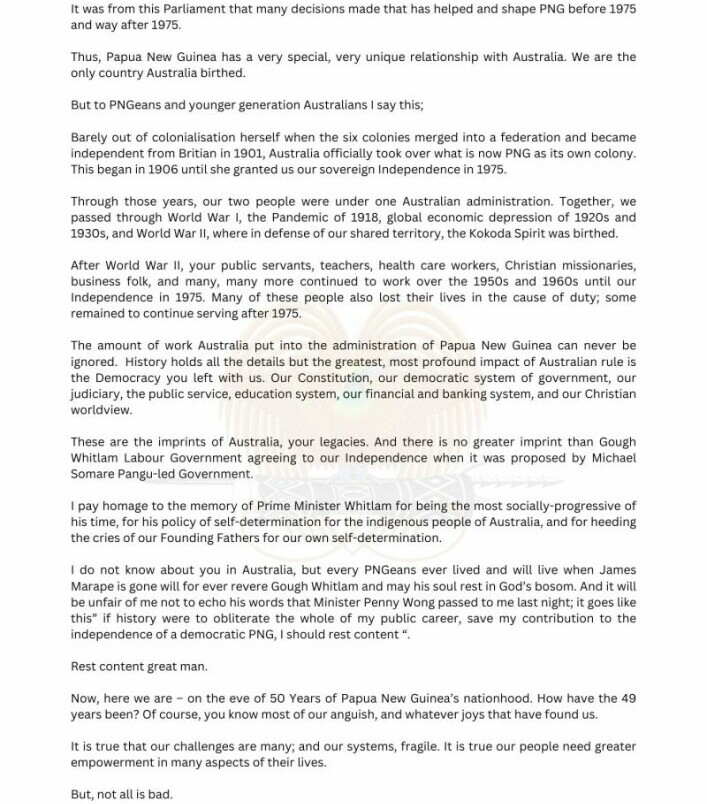
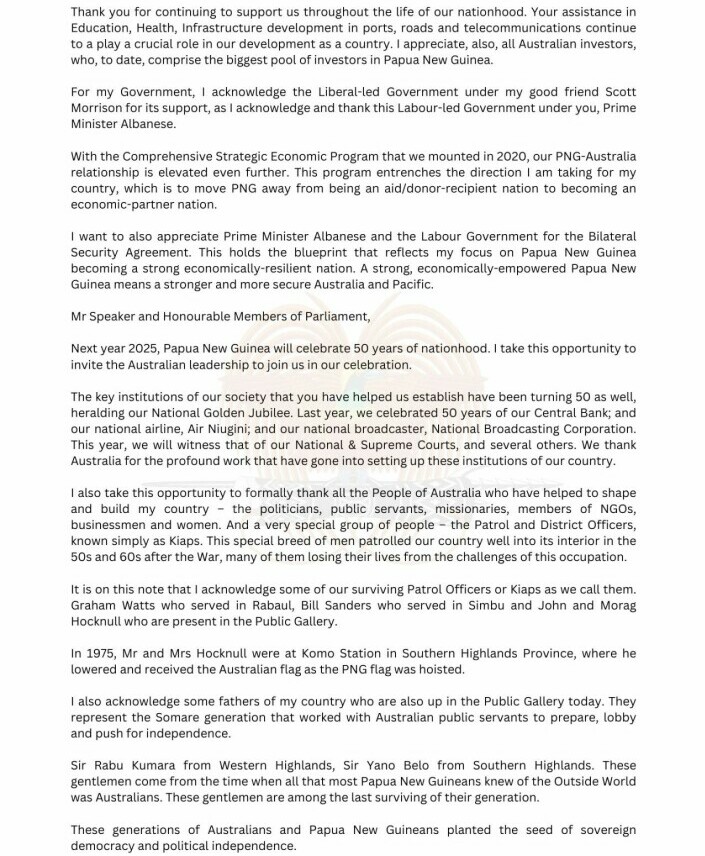
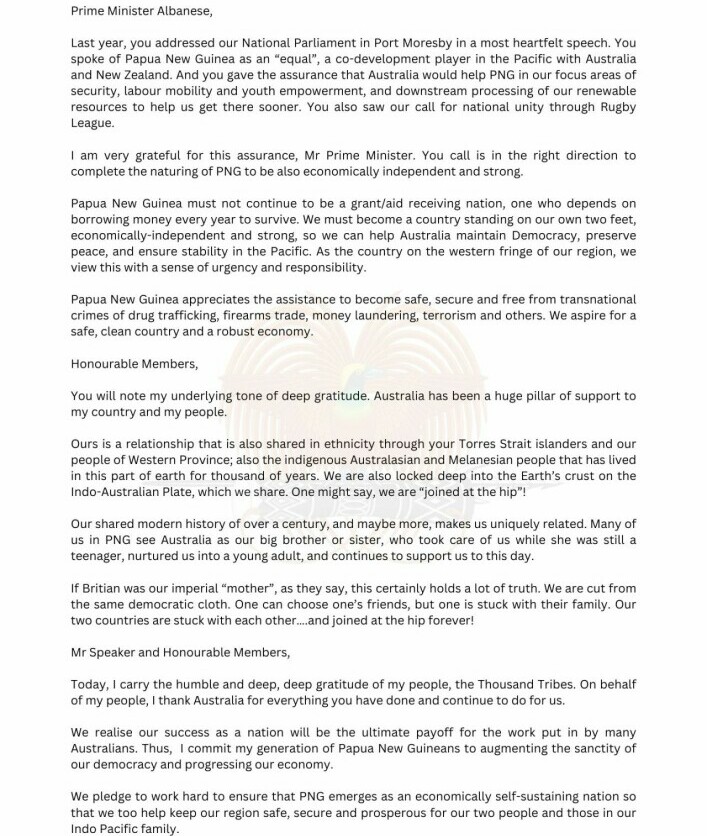
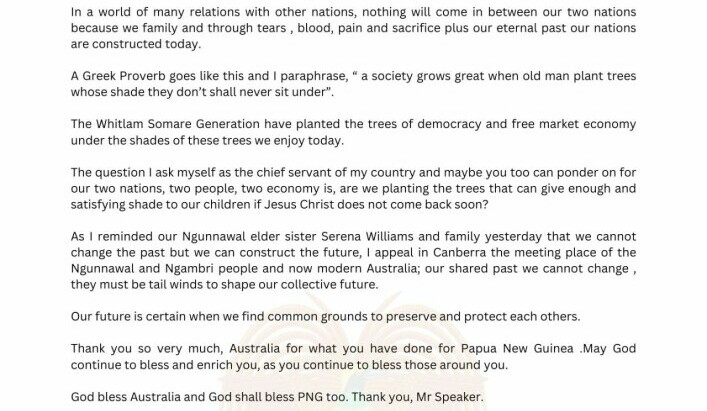
PNG
Papua New Guinea (PNG; /ˈpæp(j)uə ... ˈɡɪni, ˈpɑː-/, also US: /ˈpɑːpwə-, ˈpɑːpjə-, ˈpɑːpə-/; Tok Pisin: Papua Niugini; Hiri Motu: Papua Niu Gini), officially the Independent State of Papua New Guinea (Tok Pisin: Independen Stet bilong Papua Niugini; Hiri Motu: Independen Stet bilong Papua Niu Gini), is a country in Oceania that comprises the eastern half of the island of New Guinea and its offshore islands in Melanesia (a region of the southwestern Pacific Ocean north of Australia). Its capital, located along its southeastern coast, is Port Moresby. It is the world's third largest island country with an area of 462,840 km2 (178,700 sq mi). At the national level, after being ruled by three external powers since 1884, Papua New Guinea established its sovereignty in 1975. This followed nearly 60 years of Australian administration, which started during World War I. It became an independent Commonwealth realm in 1975 with Elizabeth II as its queen. It also became a member of the Commonwealth of Nations in its own right.Papua New Guinea is one of the most linguistically diverse countries in the world. There are 851 known languages in the country, of which 11 now have no known speakers. As of 2019, it is also the most rural, as only 13.25% of its people live in urban centres.
Their social lives combine traditional religion with modern practices, including primary education. These societies and clans are explicitly acknowledged by the Papua New Guinea Constitution, which expresses the wish for "traditional villages and communities to remain as viable units of Papua New Guinean society" and protects their continuing importance to local and national community life.





Comments
Post a Comment